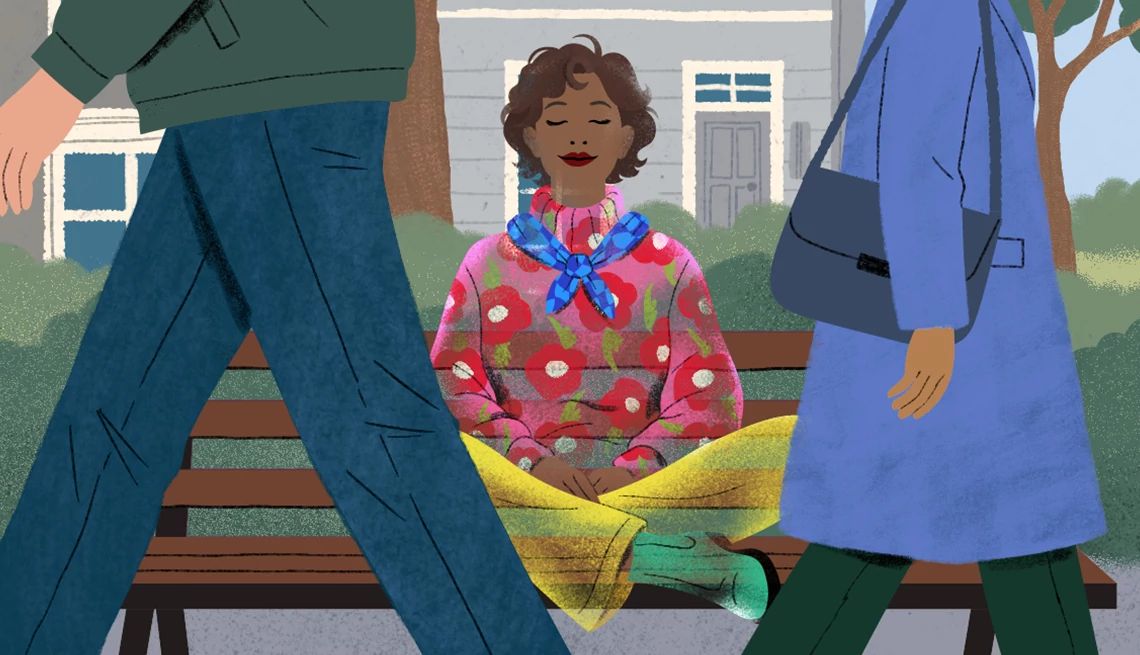AARP Hearing Center


Welcome to Ethels Tell All, where the writers behind The Ethel newsletter share their personal stories related to the joys and challenges of aging. Come back Wednesday each week for the latest piece, exclusively on AARP Members Edition.
During one of my recent morning walks in the neighborhood, a car slowly rolled up to the young woman 20 feet ahead of me, talking on her phone. The driver poked his head out the window to ask if “pretty mama” wanted a ride. She ignored him and kept walking, but he continued badgering her.
I felt sorry for her, remembering the times I had been catcalled by men and the rude comments that often followed. The guy finally gave up and drove on, never once glancing in my direction. It was as if I were invisible — and I loved it.
A while back, while walking past a group of male workers, I braced myself for their curious gazes and remarks, but they looked right through me. It was the first time I tasted the freedom of not being seen, of not being analyzed or judged for my outward appearance. It was a liberating moment, a relief from the constant scrutiny I had grown up with.
My parents believed that appearances were everything. Whether it was dressing for school, church or dinner out with the family, my siblings and I were always primped to look our best.
There were also years of braces to straighten my teeth, monthly hair appointments and magazine clippings of dieting tips pinned to the fridge as a reminder to manage my weight. I did what I could to look pretty whenever our family went out — but mostly I just wanted to be invisible.
If a stranger’s gaze fell on me, I quickly looked away in the hopes that they wouldn’t comment on my appearance. My parents assumed I was shy and did their best to push me out of my shell. But their constant remarks about my looks made me even more self-conscious: “Straighten your posture, brush your hair off your face, walk with your toes pointed forward, suck in your tummy ...”
These comments were often followed by lectures on the importance of first impressions. The message was clear: Make myself visible by being as attractive as possible.
My attitude changed once I was old enough to enter the dating scene. I wanted to stand out so that the high school boys would notice me. I took great pains to curl my hair, apply just the right amount of lipstick (never too much, my mother said, or else I’d look cheap) and iron my dresses so that there were no creases.
But I quickly learned that the consequences of being visible also included criticism and unwarranted gossip. Remarks about my bra size or the shapelessness of the baggy jeans I wore to disguise my weight left me feeling insecure and wishing I could disappear like Casper into the walls. I struggled to be pretty enough and visible like the popular girls at school, but gaining male attention was a double-edged sword.




































































You Might Also Like
My Friend Insists on Paying for Dinner
How can I break the cycle and convince my friend to let me pay the bill?
Finding New Friends in Retirement Can be Hard
From Meetup to friend dates, here are the things I tried
Menopause Parties Are Trending, With Good Reason
From hosting a dance party to focusing on self-care, here’s how to ring in this new phase